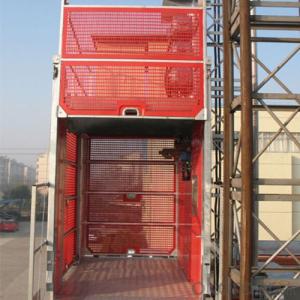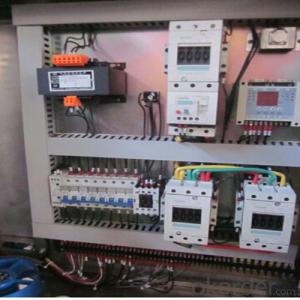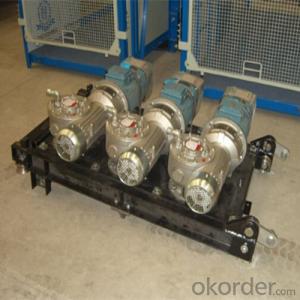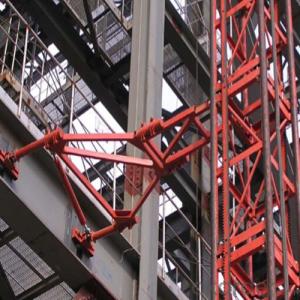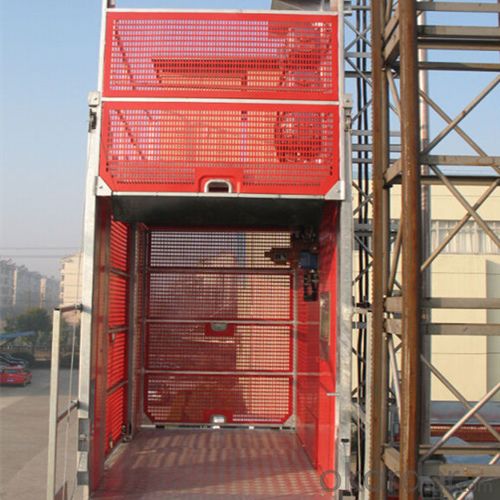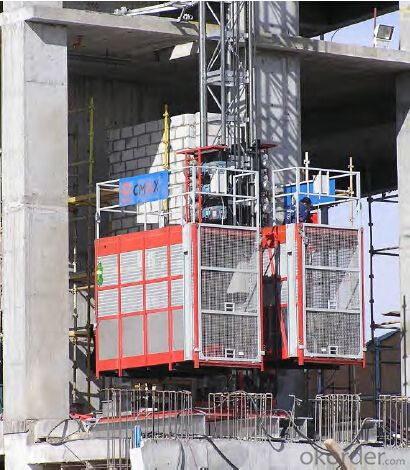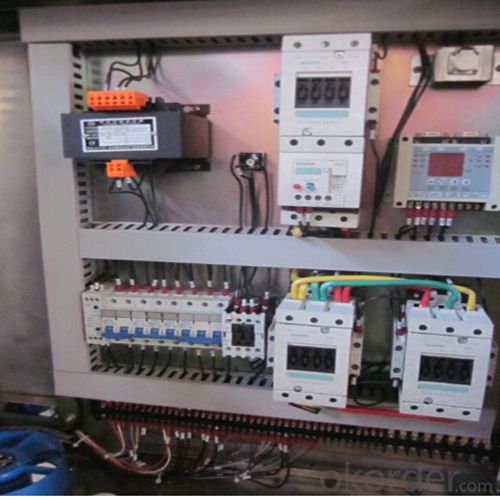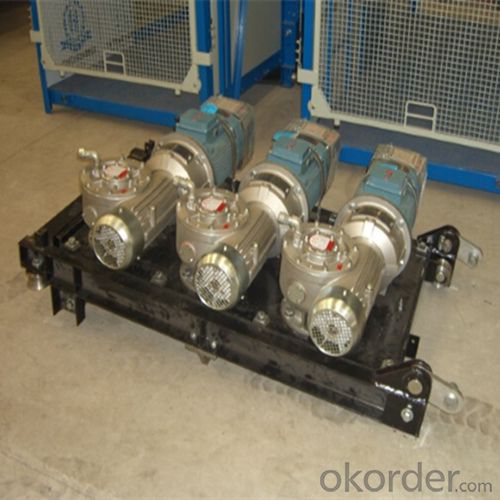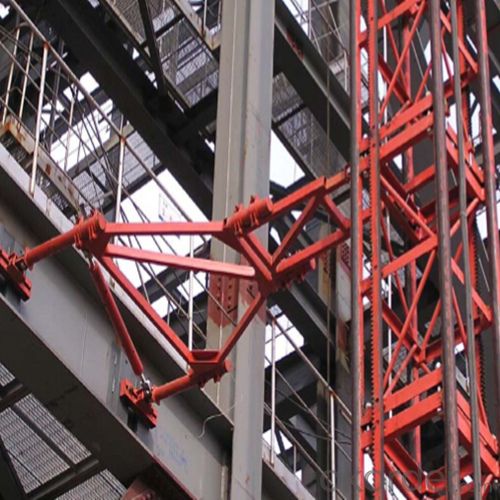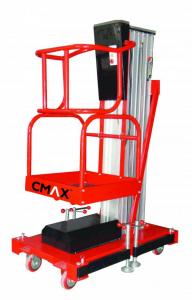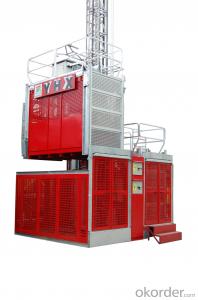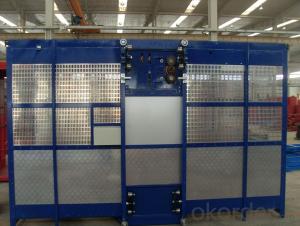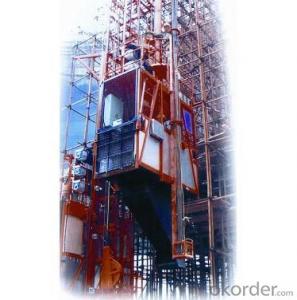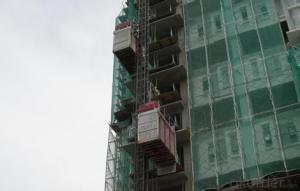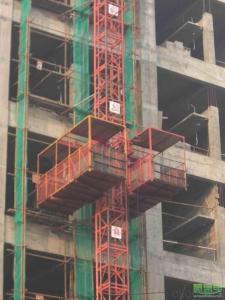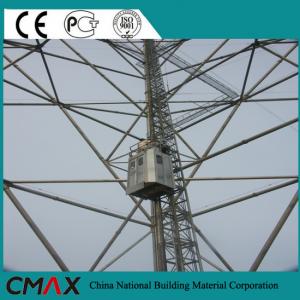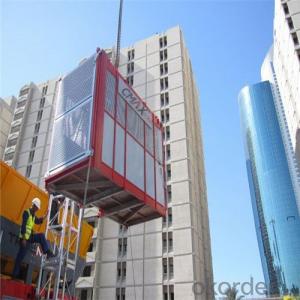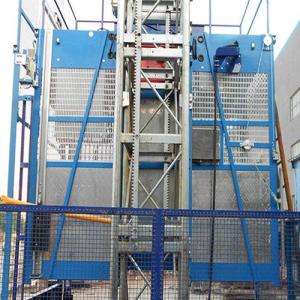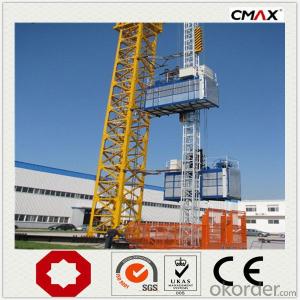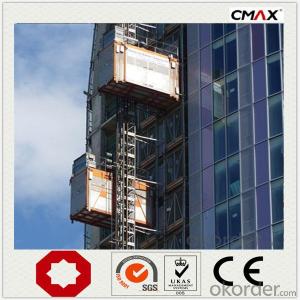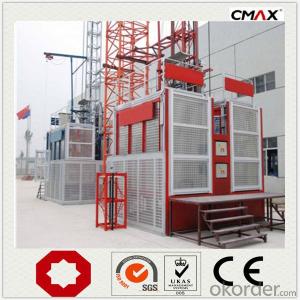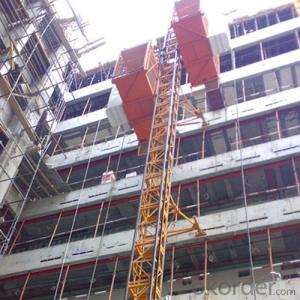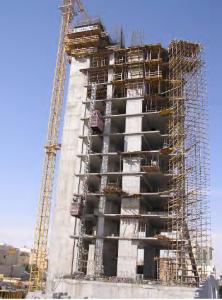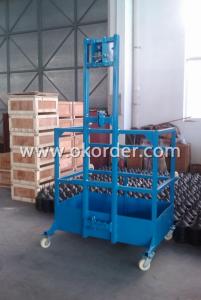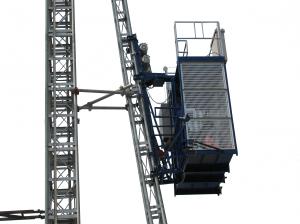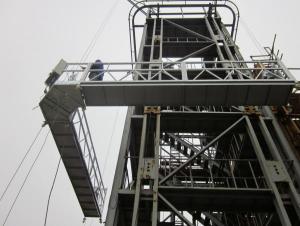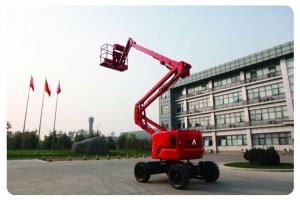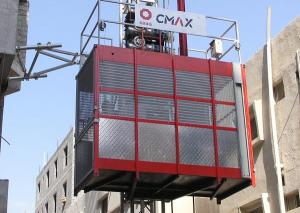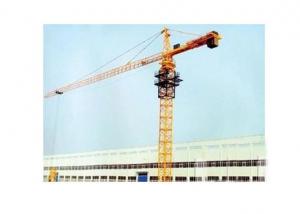Construction Hoist SC150D,Electric Parts from World Renowned Manufactures such as Schneider, Siemens, and LG
- Loading Port:
- China main port
- Payment Terms:
- TT or LC
- Min Order Qty:
- 1 unit
- Supply Capability:
- 30 unit/month
OKorder Service Pledge
OKorder Financial Service
You Might Also Like
SC Hoist is a Rack and Pinion EL. Lift, used on construction site for transportation of personnel and materials. It is installed and dismounted conveniently and can grow as high as the buildings grow in height.
There are single cage and twin cage hoists. A single cage can be quickly transformed into twin cage hoist by adding a cage and other parts. The hoist payload can be increased by adding counterweight equipment.
SC Hoist has reliable electrical and mechanical safety device. It is a efficient and safety vertical transporting equipment.
Structure of Construction Hoist Description
Feature: Construction Hoist Condition: New Application: Construction
Payload(kg):2700 Lifting Speed(m/min):33 Motor Power(kw): 3*15
Safety Device: SAJ50-1.2 Cage: Single Counterweight: No
Certification: CE,ISO Place of Origin: China(Mainland) Model Number: SC150D
Construction Hoist Specifiction
Main technical data | Unit | Value |
Rated load | kg | 1500 |
Rated erection load | kg | 1000 |
Jib attachment rated load | kg | 300 |
Cage size | m | 3.0×1.3×2.5 |
Maximum lifting height | m | 250 |
Lifting speed | m/min | 0~45 |
Rated output | kW | 2×18.5 |
Voltage rating | V | 380/440 |
Rated frequency | Hz | 50/60 |
Rated current | A | 2×37.8 |
Power supply fuses | A | 96 |
Protective class | / | IP55 |
Load duration factor | / | FC-25% |
Safety device | m/s | 1.2 |
Enclosure weight | kg | 980 |
Cage weight | kg | 1850 |
Counterweight | kg | / |
Mast section weight | kg | 125/145 |
Mast section length | mm | 1508 |
Packaging & Delivery of Construction Hoist
Packaging Detail: Nude package Delivery Detail: 25-30days
Building hoist inmmages
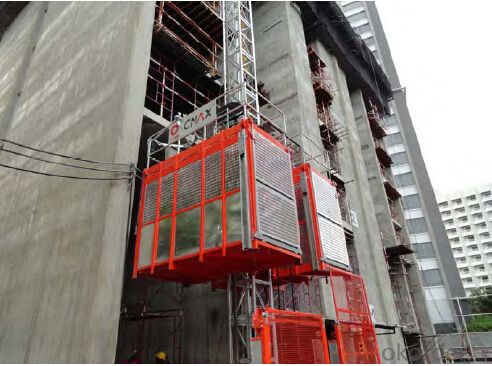
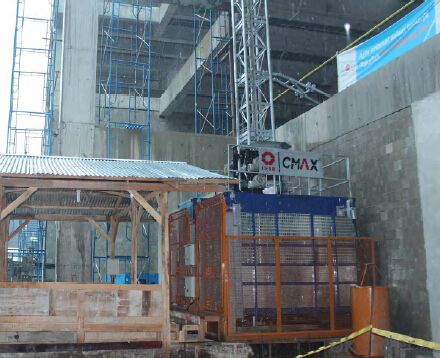
Main Parts of Construction Hoist
● The gearing adopts imported bearing, enameled cable, and oil seal.
● The electric parts adopt products from world renowned manufactures such as Schneider, Siemens, and LG.
● The racks and pinion adopts special material and heat-treatment technique, which prolong the life of these parts.
● The steel structure uses quality steel from famous domestic manufactures.
● The surface of the structure can apply paint-spray, parkerozing baking finish or hot galvanizing processing according
to users requirements,
● The cage can be produced and decorated by aluminum molded board, punched-plate or figured aluminm board.
FAQ of Construction Hoist
Q: What is the building hoist main purpose?
A: Building hoist equipped with double or single cabin to transport the materials and labors up and down. It's the ideal
construction equipment for vertical transportation in the field of construction.
Q: What is the main structure of building hoist?
A: The P/M construction hoist mainly contains metal structure, driving system, electrical control system, cable guide &
protection system, electrical top crane and safety device.
Q: What is the meaning of the building hoist’s code?
A: Take SC200/200 for example: “SC” stands for rack and pinion hoist, “200/200” stands for double cage and capacity
is 2 tons per cage. “SC200” stands for single cage and capacity is 2 tons.
Q: What is the dimension of the cage?
A: Normally the cage dimension is 3X1.5X2.5M (L/W/H) for 2t type hoist. Details should be checked according to our
quotation sheet. Also, the size can be customized according to the factual site condition. There are two doors (entrance
& exit doors) for each cage, It can be produced as up & down sliding or ramping model for safety and convenience.
- Q: This question asks for the methods used to maintain and care for a building hoist, which is a type of lifting equipment used in construction.
- <p>Regular maintenance of a building hoist is crucial for safety and efficiency. Key methods include daily inspections of cables, hooks, and safety devices for any signs of wear or damage. Lubricate moving parts as per the manufacturer's guidelines to reduce friction and prevent rust. Ensure that all electrical components are clean and dry, and check for any loose connections or damaged wires. Perform load tests periodically to confirm the hoist's lifting capacity and safety. Keep the control panel and all operational areas clean and free from debris. Regularly check the hoist's anchorage to ensure it is secure. Adhere to all manufacturer's recommendations for maintenance intervals and procedures. Proper maintenance can extend the life of the hoist and prevent accidents.</p>
- Q: The staff on the construction platform shall not exceed the number of people
- Depending on the actual situation, different quality of platform specifications will affect the number of people manned. Hope can help you.
- Q: This question asks for the method to determine the maximum weight a building hoist can safely lift.
- <p>To calculate the load capacity of a building hoist, you must consider several factors. First, refer to the manufacturer's specifications for the hoist model in question, as they will provide the maximum load capacity. Check the hoist's mechanical components, such as the motor, cables, and pulleys, to ensure they are in good condition and can support the intended load. Factor in the weight of the materials to be lifted, including any containers or attachments. Consider the hoist's speed and lifting height, as these can affect stability and safety. Always adhere to safety regulations and never exceed the manufacturer's specified load capacity to prevent accidents and equipment damage.</p>
- Q: Is it possible to use a manual building hoist to lift multiple objects simultaneously?
- <p>Yes, a manual building hoist can be used to lift multiple objects at once, provided the total weight does not exceed the hoist's maximum load capacity. It's crucial to ensure that the hoist is securely attached to a stable structure and that all safety protocols are followed to prevent accidents. The objects should be evenly distributed and properly secured to the hoist to maintain balance and prevent tipping. Always refer to the manufacturer's guidelines for specific weight limits and safety instructions.</p>
- Q: This question asks for the method to determine the maximum load that a single-rope lift can handle.
- <p>To calculate the load capacity of a single-rope lift, you need to consider several factors including the strength of the rope, the diameter of the rope, the angle of the lift, and the safety factor. The basic formula involves determining the maximum load the rope can bear based on its material properties and construction, which is then adjusted by the safety factor to account for dynamic loads and potential wear. The formula might look something like this: Load Capacity = (Tensile Strength of Rope 脳 Area of Rope Cross-Section 脳 Safety Factor) / (Cosine of Angle of Incline). It's important to consult with engineering standards and the lift manufacturer's specifications for precise calculations.</p>
- Q: This question asks whether a hydraulic building hoist can be used in both indoor and outdoor environments and seeks reasons for its versatility.
- <p>A hydraulic building hoist can be used both indoors and outdoors. These hoists are designed to be versatile and durable, capable of withstanding various weather conditions when used outdoors. They are also compact and can be easily maneuvered in indoor spaces. The primary reason for their versatility is the robust construction and the ability to handle different loads with precision. Additionally, hydraulic systems are less affected by electrical interference, making them suitable for environments with fluctuating power supplies. However, it's important to ensure that the hoist is properly maintained and protected from extreme weather conditions to prolong its lifespan and ensure safety.</p>
- Q: Excuse me: what is the meaning of heavy weight in the construction elevator?
- That's what it means to be heavyReally, I hope to have more good posts
- Q: This question asks for the steps or methods to fix a building hoist that is not working properly.
- <p>To repair a malfunctioning building hoist, first, ensure the hoist is powered off and disconnected from any power source to ensure safety. Inspect the hoist for visible damage or loose parts. Check the motor, cables, and control panel for any signs of wear or damage. If the issue is mechanical, such as a stuck cable or a jammed pulley, disassemble the affected parts and clean or replace them as necessary. For electrical issues, inspect the wiring and connections for any shorts or breaks. Consult the hoist's manual for troubleshooting guides specific to the model. If the problem persists or if you're unsure about any steps, it's best to contact a professional technician for repair to avoid further damage or safety hazards.</p>
- Q: Can a building hoist experience failure due to mechanical problems or the natural aging process?
- <p>Yes, a building hoist can malfunction due to mechanical issues or wear and tear. Mechanical problems can arise from various factors such as poor maintenance, overloading, or manufacturing defects. Wear and tear, which is the gradual deterioration of a machine's parts over time, can also lead to malfunctions. Regular inspections and maintenance are crucial to identify and rectify these issues, ensuring the safety and efficiency of the hoist operation.</p>
- Q: This question asks for guidance on selecting the appropriate lifting equipment based on specific requirements.
- <p>Choosing the right type of lifting equipment involves assessing several factors: the weight and size of the load, the environment in which the lifting will occur, and the specific tasks to be performed. Consider the load capacity required and ensure the equipment can handle the heaviest item you need to lift. Evaluate the space constraints and accessibility of the lifting area. Select equipment that is safe for the environment, such as explosion-proof models for hazardous areas. Consider the need for mobility and whether the equipment should be portable or fixed. Finally, consult with equipment manufacturers or industry experts to ensure you choose equipment that meets all safety standards and is suitable for your specific lifting needs.</p>
Send your message to us
Construction Hoist SC150D,Electric Parts from World Renowned Manufactures such as Schneider, Siemens, and LG
- Loading Port:
- China main port
- Payment Terms:
- TT or LC
- Min Order Qty:
- 1 unit
- Supply Capability:
- 30 unit/month
OKorder Service Pledge
OKorder Financial Service
Similar products
Hot products
Hot Searches
Related keywords
